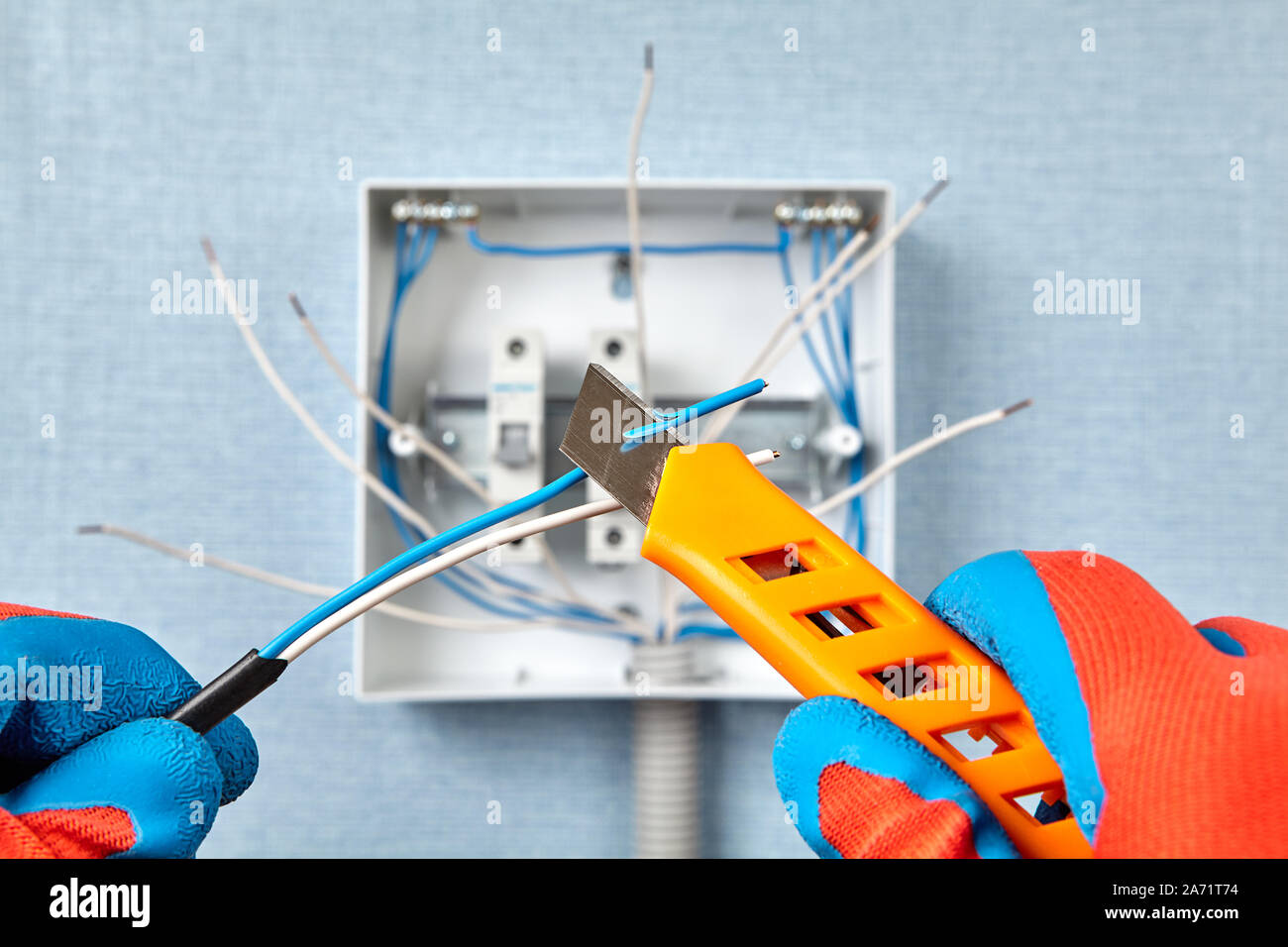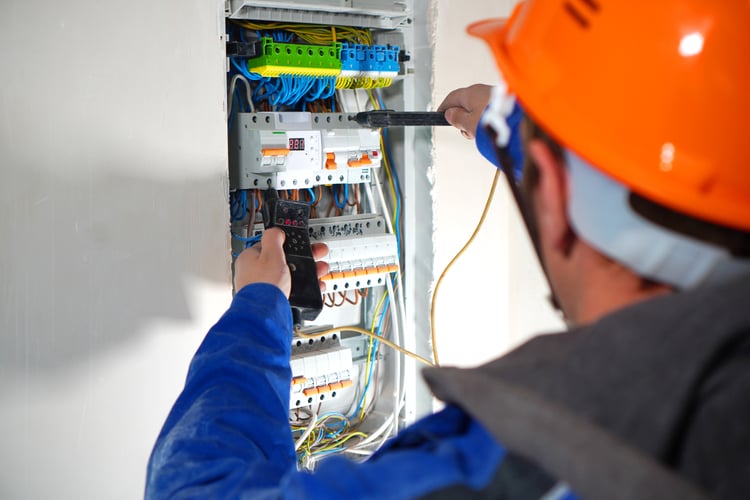Top-Notch BRE Electrical Services for Residential and Commercial Requirements
Top-Notch BRE Electrical Services for Residential and Commercial Requirements
Blog Article
Debunking Electric Installation: Comprehending Codes and Rules for a Legal and Safe Arrangement
In the realm of electric setup, adherence to codes and policies is critical to make sure both legitimacy and security. The intricacies bordering electrical job can be daunting, however acquainting oneself with the well-known requirements is key to navigating this area with self-confidence. By comprehending the ins and outs of the National Electric Code and local building codes, people can guarantee that their setups meet called for safety measures and remain in conformity with the regulation. The journey to debunking electric installment goes beyond plain familiarity with guidelines; it requires an extensive grasp of how to carry out risk-free electrical methods effectively.
Relevance of Electric Codes
The adherence to electric codes is essential in making certain the safety and security and reliability of electrical installments. Electric codes serve as a set of standards and standards that dictate the correct layout, installation, and maintenance of electric systems. These codes are established to reduce the risk of electrical risks, fires, and other safety problems that may occur from defective electric job.

Additionally, electrical codes are on a regular basis upgraded to include brand-new modern technologies, ideal methods, and precaution. Remaining upgraded with these codes is crucial for professionals in the electrical industry to make sure that their work satisfies the most current safety standards. Eventually, the significance of electric codes exists in developing a safe and efficient electric facilities that profits both people and communities.
Trick Rules for Safety And Security
Numerous basic laws control the safety and security requirements in electric installments. One key guideline is the National Electric Code (NEC), which supplies standards for risk-free electric layout, installation, and assessment to protect people and building from electric threats. The NEC covers aspects such as wiring techniques, grounding, overcurrent security, and devices installation to make certain a risk-free electrical system.
Another essential regulation is the Occupational Security and Health And Wellness Administration (OSHA) requirements, which focus on the safety and security of employees associated with electric installments (BRE Electrical). OSHA guidelines include demands for proper training, safety procedures, and personal protective equipment to avoid office mishaps and injuries
Moreover, the International Electrotechnical Commission (IEC) standards aim to integrate electrical installation policies on a worldwide scale. These requirements address issues like electrical equipment safety and security, electro-magnetic compatibility, and energy effectiveness to promote uniformity and safety in electric installments worldwide.
Compliance with these essential policies is necessary to make sure the security and legality of electric setups, safeguarding both people and residential property from the threats related to power.
Comprehending National Electric Code
Key laws such as the National Electrical Code (NEC) provide important standards for risk-free electrical layout, installation, and examination to ensure the protection of people and residential property from electrical dangers. The NEC, additionally understood as NFPA 70, is a thorough set of standards for electric installments that are BRE Electrical updated every 3 years. It is developed by the National Fire Security Association (NFPA) and is commonly adopted across the United States.
The NEC covers numerous elements of electric job, including circuitry methods, grounding, overcurrent protection, and equipment installment. It intends to secure individuals and residential property by addressing prospective dangers linked with electrical systems. Conformity with the NEC is typically implemented by neighborhood authorities having jurisdiction (AHJs), such as building code authorities and inspectors.
Comprehending the NEC is important for electrical contractors, developers, and assessors to ensure that setups satisfy the essential safety and security needs. By adhering to the NEC standards, professionals can aid protect against electric mishaps and make sure the integrity of electrical systems in household, commercial, and industrial settings.

Compliance With Neighborhood Structure Codes
Understanding and sticking to regional structure codes is crucial for ensuring the safety and security and compliance of electrical setups within a specific jurisdiction (BRE Automation Australia). Local building ordinance vary from one community to an additional, and they are implemented to safeguard the health of owners and properties. These codes detail specific needs for electric setups, such as the sort of wiring to be used, placement of outlets, basing techniques, and tons capabilities. By following regional building regulations, electrical experts can make sure that setups are done appropriately and fulfill the required safety criteria.
When it involves electric installations, failure to follow regional building ordinance can result in serious consequences. Non-compliant installations might pose safety hazards, boost the risk of electric fires, and lead to pricey fines or lawful problems. In addition, insurer might decline to cover problems arising from installations that do not fulfill regional building ordinance needs. Therefore, it is imperative for electricians and contractors to stay educated around and purely stick to the regional building ordinance suitable to their tasks.
Making Certain Safe Electric Practices
Exercising strict adherence to developed security protocols is crucial in the area of electrical installments to mitigate prospective risks and make sure the well-being of people and residential properties. Safety in electric job encompasses different facets, beginning with the proper training of personnel associated with setup, upkeep, and repair service. It is vital to follow supplier directions diligently when managing electrical elements and devices. Prior to beginning any kind of job, it is necessary to carry out a thorough threat assessment to recognize possible risks and carry out precautionary actions. Utilizing personal safety tools (PPE) such as protected handwear covers, safety glasses, and non-conductive shoes is non-negotiable to guard versus electrical shocks and arc flashes. Regular devices assessments, screening, and upkeep timetables are indispensable to find and rectify faults prior to they escalate right into safety and security dangers. Adherence to appropriate lockout-tagout procedures throughout upkeep tasks is important to prevent unintentional energization of circuits. By focusing on safe techniques, electric setups can work effectively while reducing the chance of crashes or damages.
Final Thought
Finally, adherence to electrical codes and guidelines is crucial for making certain the security and legitimacy of electric installments. Recognizing the National Electric Code and compliance with local building ordinance are crucial for a risk-free arrangement. By adhering to these standards and practicing safe electric methods, individuals can prevent potential dangers and ensure the proper performance of their electrical systems.
Report this page